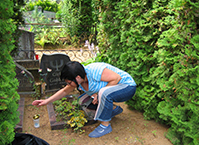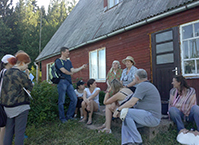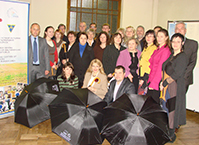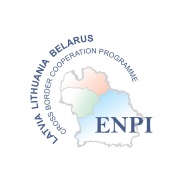About the sister after the World War II
Categories: Residence and weekdays, Antonina Ludborza
Story-teller: So, this is how we found her in the end, you see. The war was going on. But here, only, wait, the year forty-fourth, we received the letter in forty-five, we got in on some day in May, I think. We hadn’t known whether she was alive or not for the whole year. And then, when they sent that letter, we began to exchange letters. But it was not really possible to keep that correspondence. The censure was terrible, and other things. And Holland was, as it’s said, the land of capitalists. But she was … But she was in Germany, Hamburg, you understand how far it was, don’t you. And she worked in English wor… wor… factory that produced jams and everything. So, thus, that was from the year forty-two to the year forty-four, I guess, forty-five, when they got released. They, Hamburg was freed by England, Americans, not by Russians. So, then she arrived, and left for Holland.”
Images
Audio
Researcher: Dr. philol. Gatis Ozoliņš, Daugavpils Universitāte












